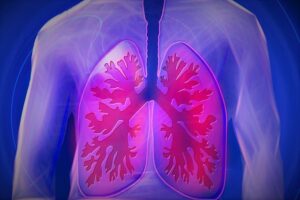
Image Source: Unsplash
## Introduction Cold weather can have significant effects on the cardiovascular system, increasing the risk of heart disease and related complications. As temperatures drop, our bodies undergo various physiological changes to adapt to the cold. However, these adaptations can put extra stress on the heart and blood vessels, leading to an increased risk of heart attacks, strokes, and other cardiovascular problems. In this article, we will explore the impact of cold weather on heart health, the underlying mechanisms, and strategies to protect the heart during the winter months.
The Relationship Between Cold Weather and Heart Health
Research indicates that cold weather is associated with an elevated risk of heart attacks and cardiovascular deaths. Official statistics on excess winter deaths in the UK suggest that the rise in risk starts when the average temperature drops below 12°C. However, the effects of cold weather on health can persist for two weeks or more. BHF-funded studies have shown that heart attacks and strokes are more than twice as likely to occur during cold spells lasting at least four days. A fall in temperature, rather than the absolute coldness, seems to be the primary factor contributing to these cardiovascular events.
Physiological Changes in Response to Cold Weather
The human body undergoes several adaptations in response to cold weather. When exposed to low temperatures, blood vessels in the skin and extremities narrow, a process known as vasoconstriction. This narrowing reduces heat loss but increases blood pressure and places additional strain on the heart. The heart must work harder to pump blood throughout the body, leading to an increased heart rate. Additionally, the blood itself can become thicker and stickier in cold weather, increasing the risk of clot formation and subsequent heart attacks or strokes.
Impact on Individuals with Existing Heart Conditions
Cold weather can have a more pronounced effect on individuals with pre-existing heart conditions. People with angina may experience worsening symptoms during winter or find that they are less able to engage in physical activity. The combination of narrowed blood vessels, increased heart rate, and thicker blood can exacerbate the symptoms of angina and put additional strain on the heart. It is crucial for individuals with heart conditions to take precautions and stay warm during the winter months to minimize the risk of cardiovascular complications.
Cold Weather and Blood Vessels
The narrowing of blood vessels in response to cold temperatures is a natural physiological response to preserve body heat. However, this vasoconstriction can have detrimental effects on the cardiovascular system. When blood vessels constrict, blood flow is redirected to vital organs such as the brain, heart, and lungs, while circulation to the skin and extremities is reduced. As a result, blood pressure increases, and the heart must work harder to maintain adequate blood flow. These changes can be especially problematic for individuals with compromised cardiovascular systems.
Cold Weather and Exercise
Exercise is an essential component of maintaining heart health, but cold weather can present challenges for those with heart conditions. When we exercise, our hearts beat faster and blood vessels supplying the muscles expand to allow increased blood flow. However, in cold weather, blood vessels supplying non-essential areas such as the digestive system narrow, redirecting blood flow to the working muscles. This redistribution of blood flow, combined with the increased workload on the heart, can be taxing for individuals with heart conditions. It is important for individuals to be mindful of their limitations and exercise indoors or modify their activities to reduce the strain on the heart.
Cold Weather and Heart Attacks
The relationship between cold weather and heart attacks is complex. While it is challenging to directly attribute individual heart attacks to specific weather conditions, research suggests a correlation between temperature shifts and increased rates of heart attacks. Extreme temperature variations, such as heat waves or freezing temperatures, have been associated with a higher incidence of heart attacks. The exact mechanisms behind this relationship are not fully understood but may involve the body’s ability to regulate core temperature and respond to extreme environmental conditions.
Protecting the Heart During Winter
To protect the heart during the winter months, it is important to take proactive measures. Here are some strategies that can help minimize the risk of cardiovascular complications:
1. Stay Warm
Dressing appropriately for the weather is crucial. Layering clothing can trap heat and provide insulation. Wearing a hat, scarf, and gloves can help maintain core body temperature and prevent heat loss through the head and extremities. It is especially important for older individuals, who may have a diminished ability to sense temperature changes, to stay warm.
2. Limit Exposure to Extreme Cold
If possible, minimize time spent outdoors during extremely cold weather. If outdoor activities are necessary, take frequent breaks and seek shelter in heated areas to allow the body to warm up and prevent excessive strain on the heart.
3. Avoid Strenuous Activities
Individuals with heart conditions should avoid engaging in strenuous activities, such as shoveling snow, without consulting their healthcare provider. These activities can significantly increase heart rate and blood pressure, placing additional stress on the cardiovascular system. If shoveling is necessary, take breaks, and ask for assistance if needed.
4. Maintain a Heart-Healthy Lifestyle
Adopting a heart-healthy lifestyle is important year-round but becomes even more crucial during the winter months. Eat a balanced diet rich in fruits, vegetables, whole grains, and lean proteins. Engage in regular physical activity, even if it means exercising indoors. Quit smoking and limit alcohol consumption. These lifestyle choices can help maintain optimal heart health.
5. Monitor Symptoms and Seek Medical Help
Pay attention to any unusual symptoms, such as chest pain, shortness of breath, or palpitations. If you experience these symptoms or suspect a heart attack, seek immediate medical attention. Remember that minutes matter in the event of a heart attack, and prompt medical intervention can save lives.
Conclusion
Cold weather poses unique challenges for heart health, increasing the risk of heart attacks and other cardiovascular complications. Understanding the physiological changes that occur in response to cold weather and taking necessary precautions can help protect the heart during the winter months. By staying warm, avoiding strenuous activities, and maintaining a heart-healthy lifestyle, individuals can minimize the risk of cardiovascular events and promote overall heart health in cold weather conditions.




